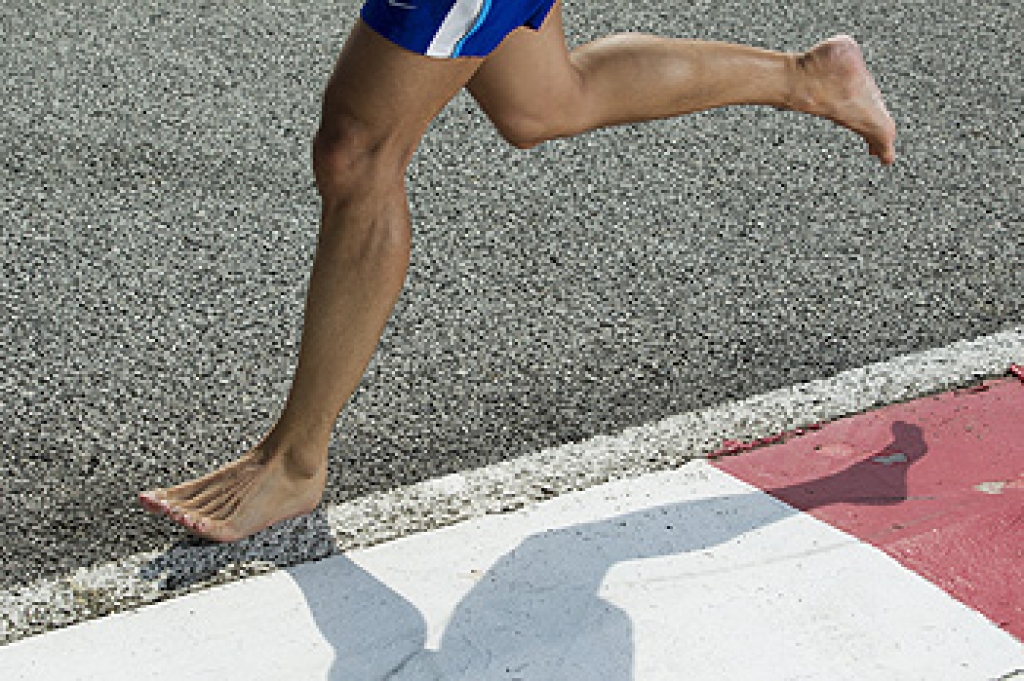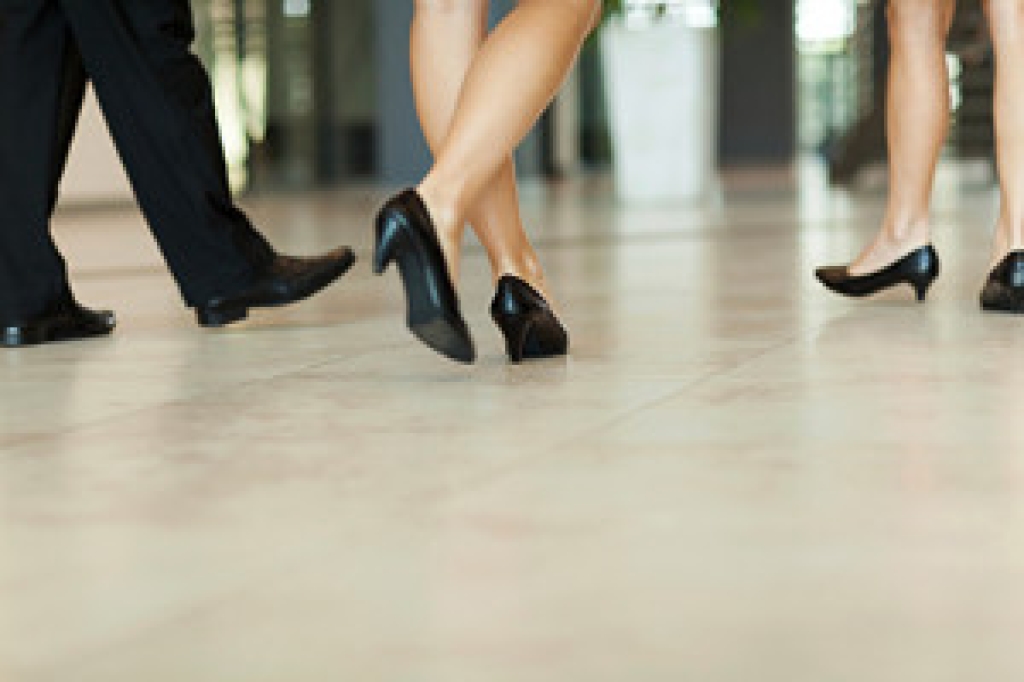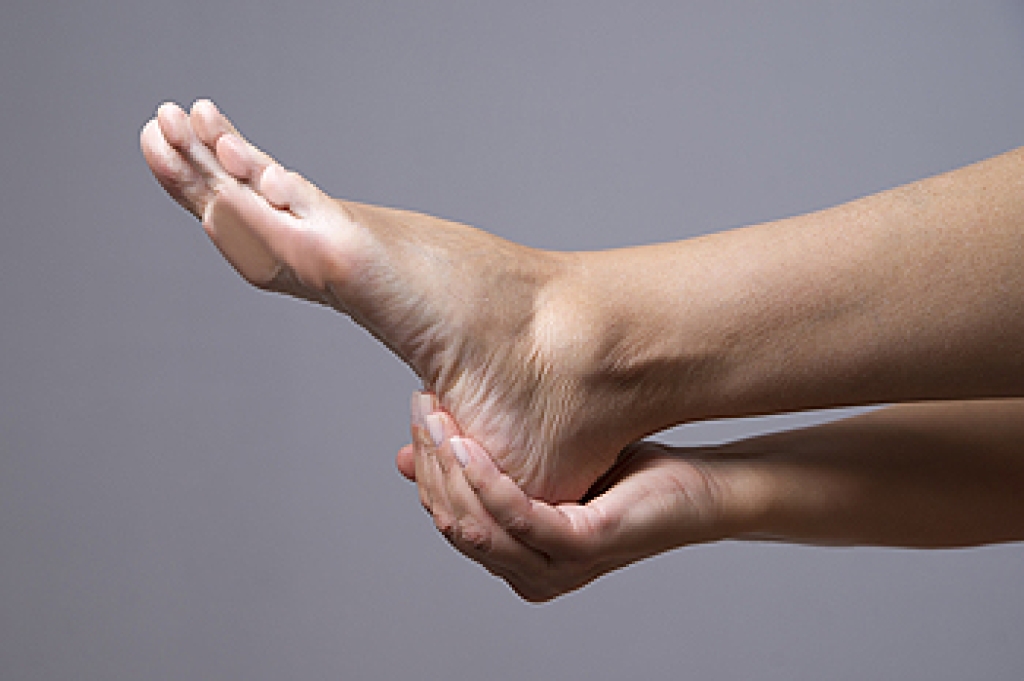 The location of the Achilles tendon is in the back of the leg and its function is to connect the heel bone to the calf muscle. If an injury should occur to this tendon, noticeable symptoms may include severe pain, difficulty in walking, or your ankles may feel weak. Many patients are unable to fully stand on the leg and swelling or bruising may be apparent. There are several causes as to why the Achilles tendon may rupture, and these may include falling unexpectedly, pivoting suddenly while participating in running or jumping activities, or ingesting specific types of medication, which may increase the chances of injuring this tendon. Research has shown if the calf muscles are gently stretched before sporting activity begins, the Achilles tendon may lengthen and become more flexible. If you feel you have injured this specific tendon, it is advised to seek the counsel of a podiatrist who can offer proper treatment advice.
The location of the Achilles tendon is in the back of the leg and its function is to connect the heel bone to the calf muscle. If an injury should occur to this tendon, noticeable symptoms may include severe pain, difficulty in walking, or your ankles may feel weak. Many patients are unable to fully stand on the leg and swelling or bruising may be apparent. There are several causes as to why the Achilles tendon may rupture, and these may include falling unexpectedly, pivoting suddenly while participating in running or jumping activities, or ingesting specific types of medication, which may increase the chances of injuring this tendon. Research has shown if the calf muscles are gently stretched before sporting activity begins, the Achilles tendon may lengthen and become more flexible. If you feel you have injured this specific tendon, it is advised to seek the counsel of a podiatrist who can offer proper treatment advice.
Achilles tendon injuries need immediate attention to avoid future complications. If you have any concerns, contact one of our podiatrists of PA Foot & Ankle Associates. Our doctors can provide the care you need to keep you pain-free and on your feet.
What Is the Achilles Tendon?
The Achilles tendon is a tendon that connects the lower leg muscles and calf to the heel of the foot. It is the strongest tendon in the human body and is essential for making movement possible. Because this tendon is such an integral part of the body, any injuries to it can create immense difficulties and should immediately be presented to a doctor.
What Are the Symptoms of an Achilles Tendon Injury?
There are various types of injuries that can affect the Achilles tendon. The two most common injuries are Achilles tendinitis and ruptures of the tendon.
Achilles Tendinitis Symptoms
- Inflammation
- Dull to severe pain
- Increased blood flow to the tendon
- Thickening of the tendon
Rupture Symptoms
- Extreme pain and swelling in the foot
- Total immobility
Treatment and Prevention
Achilles tendon injuries are diagnosed by a thorough physical evaluation, which can include an MRI. Treatment involves rest, physical therapy, and in some cases, surgery. However, various preventative measures can be taken to avoid these injuries, such as:
- Thorough stretching of the tendon before and after exercise
- Strengthening exercises like calf raises, squats, leg curls, leg extensions, leg raises, lunges, and leg presses
If you have any questions please feel free to contact one of our offices located in Allentown, Easton, Northampton, and Chew Street in Allentown, PA . We offer the newest diagnostic tools and technology to treat your foot and ankle needs.



